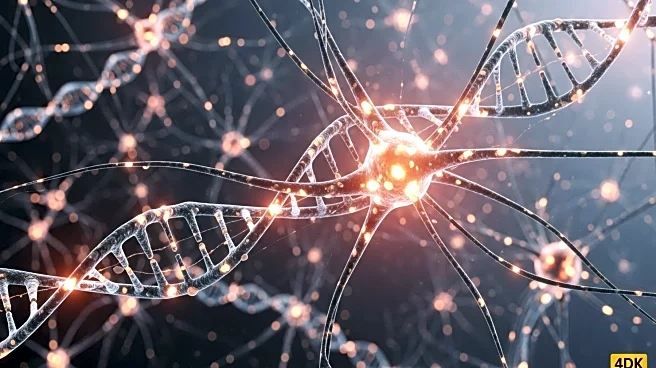What's Happening?
A recent study has identified how a mutation in the Shank3 gene, associated with autism, affects social behavior by disrupting vasopressin release in the brain. Conducted by the Cognition and Social Interactions laboratory at the Institute for Neurosciences, the research used a mouse model to demonstrate that the mutation impairs sociability and aggression by limiting vasopressin reaching the lateral septum. The study found that vasopressin acts through two receptors: AVPR1a for sociability and AVPR1b for aggression. By selectively targeting AVPR1a, researchers were able to restore social interaction without triggering aggressive responses, suggesting potential for personalized autism therapies.
Why It's Important?
This discovery provides a detailed explanation of how genetic mutations linked to autism can lead to social interaction deficits. Understanding the role of vasopressin in regulating sociability and aggression opens new avenues for developing targeted therapies that improve social behaviors in individuals with autism. The study's findings could lead to the creation of drugs that selectively activate the AVPR1a receptor, offering a promising approach to address social deficits without inducing aggression. This research highlights the importance of personalized treatment strategies in autism, considering the biological differences that may contribute to the disorder's prevalence in males.
What's Next?
The research team plans to further explore the therapeutic potential of selectively activating the AVPR1a receptor to improve social deficits in autism. The study's results are protected by a patent application aimed at developing drugs for this purpose. Future treatments could be personalized, taking into account sex differences in the vasopressin pathway, which may explain the higher incidence of autism in males. Continued collaboration with international researchers will be crucial in validating these findings and advancing the development of effective therapies.










